Quartz countertops are fast gaining popularity and becoming the go-to option for a typical upgrade to any kitchen or bathroom. They not only look super stylish but also boast lower maintenance than the usual granite countertops. But the most important aspect at hand is the lifespan of your newly installed quartz countertop. In this blog post, we’ll be discussing everything you need to know about the durability and lifespan of your quartz countertop, so you won’t have to worry about your investment any time soon.
How long will a quartz countertop last?
Answer: Quartz countertops are highly durable and generally last anywhere from 25 to 50 years or more with proper care and maintenance.
“The longevity of quartz countertops is shaped significantly by the level of care they receive. My extensive studies have shown that well-maintained quartz can last for decades, retaining its visual appeal and structural integrity. Remember though, despite its durability, quartz is not invincible; necessary precautions such as using cutting boards and preventing direct heat exposure will preserve its lifespan and aesthetic.”
Karlton Gregory Stone, Senior Geologist
How Long Do Quartz Countertops Last?
Quartz countertops are well-known for their durability and long lasting power. And depending on the quartz quality, proper care, and other environmental factors, quartz countertops can last up to 10 to 15 years or even more when used as kitchen countertops.
However, some argue that quartz countertops won’t last that long due to improper handling or careless installation. There are a few instances when the presence of water may cause an issue with the material or a cleaner that’s too abrasive could scratch the surface. If not properly installed, quartz countertops won’t be able to support heavy items either.
Because there is no definite answer to this question it comes down to how well you take care of your counters and how you maintain them over time. With proper maintenance, taking the time to seal the edges and adequate cleaning, you can expect quartz countertops to last more than 10 years in good condition.
Despite these opposing views, one thing everyone agrees on is that high-quality quartz countertops used with regular maintenance will serve as an enduring solution for most households in terms of functionality and style. Understanding what elements affect quartz durability is an important factor in making sure your countertop lasts for many years. This leads us into the next section which takes a closer look at “Factors That Affect the Durability of Quartz Countertops”.
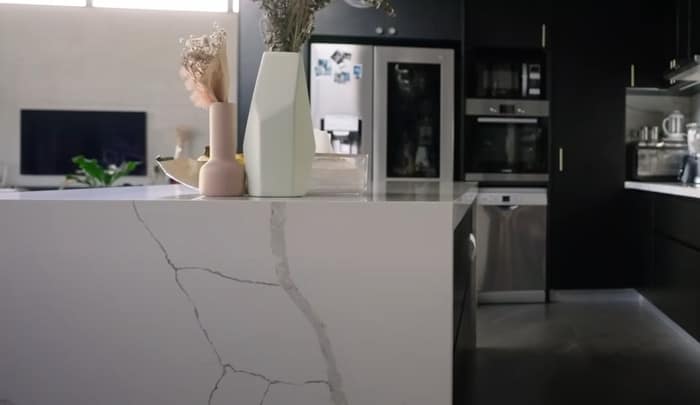
Factors That Affect the Durability of Quartz Countertops
When it comes to the durability of quartz countertops, there are several factors to consider. High-quality quartz countertops are typically made from some combination of quartz particles, resins, and other minerals mixed together. Since each element may have different levels of durability and strength, understanding the makeup of your quartz countertop is important for determining its lifespan.
In addition to knowing which components make up your quartz countertop, you should also consider how expertly it is installed. If it’s not set and sealed correctly, the overall lifespan of your quartz countertop can be shortened. Poorly installed countertops will be more vulnerable to cracking and chipping due to temperature fluctuations or impacts from heavy objects.
Daily usage patterns can also influence the longevity of a countertop material. Regularly placing hot items on a quartz surface could cause damage over time due to thermal shock. Additionally, always using a cutting board when preparing meals will help protect your quartz countertops from abrasive knives and tools that could scratch or chip them.
The good news is that with proper care and maintenance, even high-traffic areas in the home can retain their quartz counters for many years. How long they will last truly comes down to selecting quality materials and providing regular care throughout the lifetime of your countertop installation.
One final consideration is the chosen wall treatments behind the countertop such as tile or paint color choice. Wall treatments that have extremely bright or contrasting colors with the chosen quartz option will produce an optical illusion causing reflections off the wall onto the quartz surface making it bear the brunt of scratches or wear quicker than those surfaces in hues that blend with the background color better.
This discussion leads us into considering the impact of daily use on quartz countertops. The next section explores this concept in greater detail.
Key Points to Remember
Quartz countertops are typically made from quartz particles, resins, and other minerals, and how it is installed and maintained will determine how long it lasts. Placing hot items on the surface can lead to thermal shock damage over time, so a cutting board should be used when preparing meals. Proper care and maintenance of a quartz countertop, including wall treatments that contrast less with the color of the quartz, will extend its lifetime.
Impact
Impact is one of the primary factors to consider when determining the longevity of quartz countertops. Quartz is a hard and durable material, making it an ideal choice for kitchens and bathrooms. However, it is possible for quartz to crack or chip under certain conditions. While quartz is less likely to experience impact damage when compared to other materials like granite, it must be properly cared for and protected from physical trauma.
When faced with impact, the nature of the damage will depend on the force of the collision, as well as its location. If the impact occurs on a flat surface such as a countertop, it may cause small chips and scratches. In more severe cases, larger cracks can form, but this is unlikely if the counter top receives proper care and maintenance. It’s also important to consider that larger cracks are more prevalent when there are sudden temperature changes or vibrations near quartz countertops.
On the other hand, quartz has proven to be quite durable against impact damage in tests conducted by manufacturers and independent laboratories. Its durability can be attributed to its dense crystal structure, which gives quartz a level of strength that is rarely found in other types of stone materials. This strong structure allows quartz countertops to resist shocks and impacts better than other surfaces while still remaining aesthetically pleasing.
Impact-related damage can occur over time if it is not maintained properly so shielding your countertop from physical abuse is essential in order to prevent any long-term damage from occurring. By taking steps like using protective mats beneath hot items, being mindful of heavy objects placed nearby and positioning heavier objects away from edges and corners, you can ensure that your quartz countertop lasts for years to come.
The next section will discuss how heat affects quartz countertops and how best to go about protecting them from high temperatures .
Heat
When it comes to heat, quartz countertops can withstand high temperatures, up to around 450° F. However, like all natural stones, sudden temperature changes should be avoided— as they can cause some warping and/or cracks. To preserve the life of your quartz countertop, use trivets or mats when you’re placing hot items on the surface. It’s important to keep in mind that although quartz may offer more heat resistance than softer materials such as marble, it still is not completely impervious. Leaving a hot pan or pot directly onto your countertop for an extended period of time could potentially cause discoloration and staining of the quartz surface.
To ensure longevity from your quartz countertop, take measures to avoid heat. Do not use open flame cooking equipment directly on the surface and opt to use damp sponges or pads when cleaning your kitchen surfaces. As long as these tips are taken into consideration, you will have no problem enjoying your quartz countertop for years to come.
Next we’ll look at how best to maintain a quartz countertop given its susceptibility to staining due to water seepage.
Water
Water is an important factor that needs to be taken into consideration when discussing Quartz countertops. Too much, or too little, water can have a damaging effect on the quality of the Quartz and ultimately the longevity of your countertop.
Too much water over time can cause a weakening in the bond between the resins used to coat and seal Quartz countertops. This can lead to eventual cracking and crevices, which will diminish the quality of your Quartz countertop and create an environment that is favorable for bacteria growth due to being difficult to clean properly. On top of that, too much water can also cause mold to form within the cracks and cause a variety of health problems as a result.
However, it is equally important to note that Quartz countertops also need a certain amount of moisture to remain healthy and strong. Not enough water over time can lead you with dry and weak countertops that lack their initial luster and strength. Lack of moisture can be just as dangerous as too much moisture in regards to contaminates and bacteria formation within cracks.
In conclusion, it is important to find the perfect balance between enough and not too much water when it comes to cleaning your quartz countertops. The next section will discuss how different cleaning materials affect quartz countertops and how long they last.
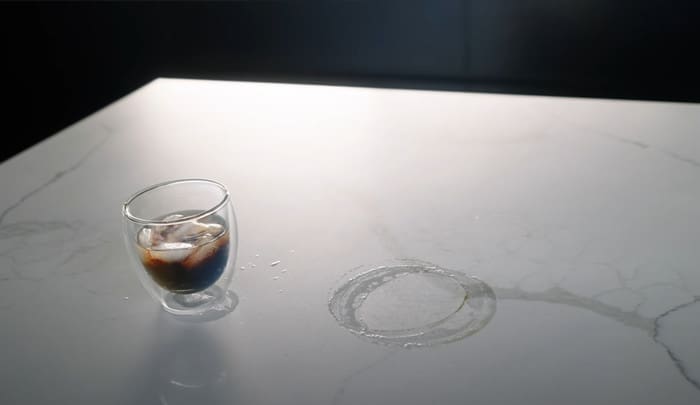
Cleaning Materials
Cleaning materials are an integral factor in maintaining the look and longevity of your quartz countertops. While many cleaners are safe and effective, some can leave damaging marks or strip away the protective sealant on the countertop.
When choosing a cleaner for quartz countertops, it is recommended to use a non-abrasive, gentle cleanser that won’t harm the metal bond of the surface. This could be as simple as a mild soap and water solution as long as it does not contain any additives such as bleach. To ensure safety, you can also consult with your manufacturer for recommended cleaning products. In particular, experts suggest avoiding acidic materials like vinegar, lemon juice, and other harsh chemicals which could cause irreparable damage to your quartz counters over time.
At the same time, it’s important to note that some safer bathroom and kitchen cleaners have been proven to be effective at removing bacteria without disturbing the finish of a quartz countertop. Many are labeled as “multi-surface” or “neutral pH” cleaners and are generally considered safe for use on these surfaces when used properly.
With all this in mind, it is always important to follow the instructions listed on any cleaning product before using it on any type of countertop material and never underestimate the power of a good old fashioned warm soapy water mixture. Making sure to avoid abrasive scrubbing sponges and soft microfiber cloths should also help keep quartz counters looking their best while minimizing the chance of damage over time.
Now that we’ve discussed cleaning materials, let’s move on to exploring how best to clean and maintain quartz countertops in our next section.
- Quartz countertops are renowned for their durability and typically last up to 20 years with proper maintenance.
- According to Houzz, quartz countertops are the only surface that comes with a warranty lasting up to 15 years.
- According to Consumer Reports, quartz countertops can resist heat, scratches, stains, and impact better than any other material except granite.
Cleaning and Maintenance
Proper cleaning and maintenance of quartz countertops is essential for ensuring that they last longer. Quartz is a very strong material and generally requires only occasional wiping with mild soap, such as dishwashing liquid, in order to maintain its shine. More intense cleaners should be avoided, as they can damage the quartz surface. It’s also important to use a non-abrasive cloth when wiping down quartz surfaces. Abrasive materials can wear away at the surface over time and make it more susceptible to scratches and other damage.
It’s also important to avoid aggressive scrubbing when cleaning quartz surfaces. Although quartz is strong, aggressive scrubbing can cause scratches on the surface. Furthermore, quartz countertops should not come into contact with acids, such as vinegar or lemon juice, as this can cause discoloration or erosion of the surface. Lastly, hot pans should never be placed directly on quartz countertops since excessive heat can cause discoloration or cracks in the material.
Taking these steps will help ensure that your quartz countertop stays looking brand new for years to come. The next step in extending the life of your quartz countertop is considering sealants and sealers. These products add an extra layer of protection that makes it easier to clean up spills or other messes if they occur on your counters.
Sealants and Sealers
Sealants and sealers are an additional layer of protection for quartz countertops to extend their lifespan by creating a barrier against dirt, bacteria, and liquid. Sealants are typically a single-ingredient product that offers mild protection against staining and etching without significantly altering the unique color or veining of quartz countertops. On the other hand, sealers contain multiple ingredients which offer greater protection while potentially changing the look of quartz by darkening its color.
When deciding whether to use a sealant or sealer, it’s important to consider how much maintenance you want to do and how much protection is necessary. Sealants provide minimal protection but are easy to apply and require little maintenance over time. Sealers may provide greater protection, but they need to be reapplied more often and may change the appearance of quartz countertops if not carefully applied.
Ultimately, the type of sealant or sealer used is largely dependent on individual needs and preferences. With proper installation and regular maintenance, either type can help ensure your quartz countertop lasts for many years.
Now that we have explored options for enhancing the durability of quartz countertops, our attention turns to design and aesthetics in the next section.
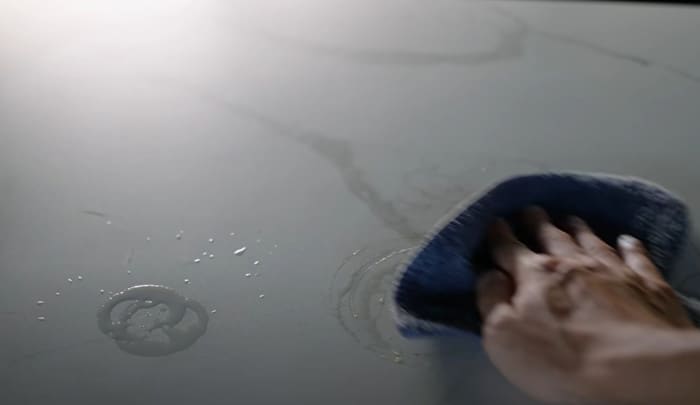
Design and Aesthetics
Design and aesthetics are key considerations to take into account when looking for a quartz countertop since it will be a focal point of your kitchen or bathroom. Quartz is known for its attractive and timeless look. Its elegant veining, subtle natural patterns, and wide array of earth-toned shades make it an ideal choice for many homeowners who are looking to bring a modern touch to their home decor. While quartz is available in numerous patterns and colors, some styles may not look as natural as others. For instance, some man-made quartz products tend to look similar due to their uniform appearance, while natural quartz features unique colorations and veins.
On the other hand, man-made quartz countertops come with consistent surface vibrancy and texture that appeal to those who prefer a contemporary design aesthetic. Man-made quartz also offers stronger stain resistance than natural stones like granite or marble, which may make it preferable for busy households with children or pets. Considering both the aesthetics of durable man-made quartz and natural stone options is important when deciding which countertop product you’d like in your home.
While there are two distinct sides to this debate, the fact remains that quartz countertops offer appealing designs and visuals for any area of your home regardless of the material’s origin. To weigh the pros and cons between natural quartz and man-made quartz countertops, let’s now explore the next section: “Pros and Cons”.
Pros and Cons
Quartz countertops are popularly known for their superior durability and longevity, making them a worthwhile investment. While they have many advantages, there may still be some drawbacks that should be taken into consideration. Let’s explore the pros and cons of quartz countertops.
One of the biggest benefits of quartz countertops is their long lifespan. As long as they are installed properly and cared for correctly, these countertops should last for upwards of 20 years and beyond. Quartz countertops are quite resistant to heat, scratches, and corrosion compared to other materials. This makes it ideal for heavily used kitchens or bathrooms.
Style-wise, quartz countertops are very versatile because they come in a wide selection of colors and patterns to choose from. They can easily fit into any space and blend nicely with most cabinetry and flooring options. Additionally, quartz also requires less maintenance than other natural stone surfaces such as granite as there is no need to seal these countertops to protect against staining.
The major con of quartz countertops is their higher price point when compared to laminates or solid surfaces. Prices can range anywhere from $50 – 150 per square foot depending on its finish, size and thickness of the slab(s), brand, location, etc., so planning your budget accordingly is key if you plan on installing quartz countertops in your home. Furthermore, quartz requires professional installation so additional fees may apply depending on the contractor chosen.
In conclusion, it’s evident that despite potential downsides such as cost, quartz countertops offer a wide array of advantages worth exploring in greater detail – most notably being its stellar durability and longevity that can easily last over two decades when properly maintained. In the next section of this guide we shall look at what it takes to care for quartz countertops in order ensure they enjoy a long life span.
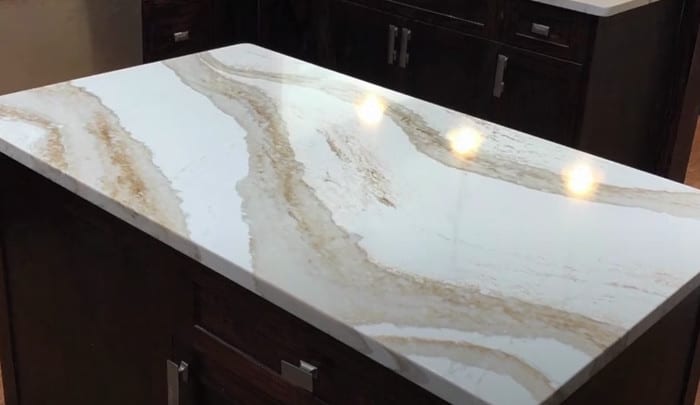
Conclusion
Quartz countertops are a durable, attractive and low-maintenance option for most homeowners. When taken care of properly, quartz countertops can last upwards of a lifetime, depending on the quality of the material and the amount of wear it sustains in its lifetime. The engineered stone is available in a variety of colors, patterns and designs to suit any decor style.
However, homeowners should be aware that like all materials, quartz countertops eventually wear down over time and may require repair or replacement. Additionally, like other surfaces, extreme temperatures and dirt, grime and spills can adversely affect the surface of builtup quartz countertop. In order to get the most out of this tough material, proper maintenance and regular cleaning is essential.
Ultimately, with proper care and maintenance quartz countertops can last for many years if not decades. And although some temporary or superficial damage will occur as a result of regular wear and tear over time, if looked after correctly you can expect your quartz countertop to serve you for much longer than other materials.
Answers to Common Questions with Detailed Explanations
What elements or materials can cause damage to quartz countertops?
Quartz countertops are generally resistant to staining, scratches, and heat. However, exposure to certain elements can still cause damage. The most common sources of damage are acidic substances like lemon juice, vinegar, or wine. These strong acids can etch into the surface of the quartz, causing permanent marks. In addition, harsh abrasives like steel wool or scouring pads can scratch surfaces, while hot pans and other items can cause thermal shock, which can also lead to surface damage or structural fracturing.
Are there any maintenance considerations that can help extend the lifespan of quartz countertops?
Yes, there are some maintenance considerations that can help extend the lifespan of quartz countertops. One of the most important is to regularly clean and seal the countertop. This should be done every 6 months for best results. Regular cleaning will help keep spills and other liquids from seeping in and staining the countertop, which could damage it over time if left untreated. Sealing the countertop helps prevent liquids from being absorbed into the material, making them more resistant to discoloration or damage. Additionally, quartz counters should be protected against extreme temperatures and direct heat sources, as this can cause warping or cracking of the material. With proper maintenance and care, quartz countertops can last for up to 20 years or more!
What are the advantages and disadvantages of quartz countertops compared to other types of countertop materials?
The primary advantage of quartz countertops compared to other types of materials is their durability and resistance to wear-and-tear. Quartz countertops are nearly indestructible, with little worry of chipping, staining, or denting. Even when subjected to heat, they remain strong and retain their beautiful shape. In addition, quartz is available in a broad range of colors and textures that can fit any style preference.
On the downside, quartz countertops tend to be more expensive than other materials such as laminate or tile. They also require professional installation in order to be properly sealed and secured. Furthermore, quartz is not as popular a choice for outdoor kitchens since it can easily stain when exposed to certain elements.
Overall, quartz countertops are a great option for those who want a stylish and resilient surface for their homes. While it might cost more upfront and require professional installation, its longevity and strength makes it a worthwhile investment for most homeowners.




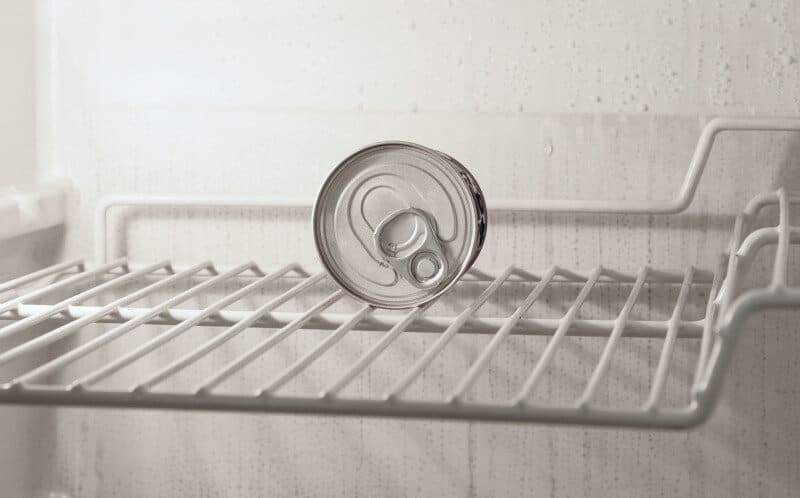
My client once spilled red wine all over her quartz countertop and it didn’t stain or degrade, a testament to its durability.
I had my quartz countertops installed over 15 years ago and they still look as bright and beautiful as they did on day one. Regular maintenance has ensured that my countertops continue to be stain-resistant despite frequent use. They’ve been worth every penny invested thus far!
I second your statement, Florence. Proper care undoubtedly plays a crucial role in extending the lifespan of quartz countertops – it’s not just about the material’s inherent durability but also how you maintain it over the years.
I’ve been designing kitchens and bathrooms for a while now, and I remember when Granite was the ‘IT’ counter choice. But in my experience, quartz is an equal competitor if not better. Also over time, with adequate care, quartz can preserve its aesthetics far longer than some may expect.
My son dropped a hammer on our quartz countertop last year, not a scratch was seen—trust me when I say they’re resilient!